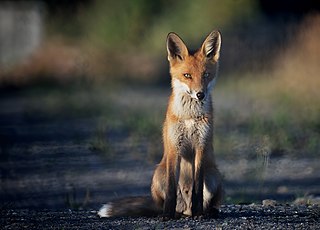Brennan is an Irish surname which is an Anglicised form of two different Irish language surnames—Ó Braonáin and Ó Branáin. Historically, one source of the surname was the prominent clan Ua Braonáin (O'Brennan) of Uí Duach (Idough) in Osraige who were a junior Dál Birn sept stemming from a younger son of Cerball mac Dúnlainge (d.888). Recent surname evaluations highlighted the geographic consistency of this lineage in the barony of Idough. However, based on the ultimate authority of Dubhaltach Mac Fhirbhisigh they are out of Ui Dhuinn (O’Dunn) and, therefore, an Uí Failghi tribe, not Osraige. While it is clearly apparent that O’Hart’s pedigree is erroneous, it is suggested that Ó Cléirigh probably became confused while transcribing from Mac Fhirbhisigh. This is echoed by the modern scholar, Bart Jaski.
Wright is an occupational surname originating in England. The term 'Wright' comes from the circa 700 AD Old English word 'wryhta' or 'wyrhta', meaning worker or shaper of wood. Later it became any occupational worker, and is used as a British family name.
Carr is a common surname in northern England, deriving from the Old Norse kjarr, meaning a brushwood, thicket or copse. It may also come from the ancient Norse Kjarr translation meaning Kaiser from Caesar Kerr is a Scottish variant, often from the Norse and from the Gaelic ciar, meaning "dusky". Carr is also a common surname in Ireland, where it often derives from the nickname, gearr, meaning "short of height". In some cases it is thought to come from the Welsh word cawr, meaning giant. Alternatively, in Ireland and Scotland, it may derive from the Irish and Scottish Gaelic cearr meaning pointed spear.
Coyle is a surname of Irish origin.
The Corrigan surname is of Irish origin. Corrigan means a "Spear" in Irish. It is believed to have originated from Coirdhecan in Eoghain. It is also believed to be connected to the Maguire clan. The Corrigan surname was common in the 17th century in County Fermanagh. Today it has spread across most of Ireland, Scotland and to the United States and Canada.
Beckett is an English surname. Notable people with the surname include:
Doherty is an Irish surname. It is anglicized of the Gaelic Ó Dochartaigh.
McCann is an Irish surname. It is derived from the Gaelic Mac Cana meaning "son of Cana". The Irish given name Cana literally means "cub", specifically alluding to a "wolf cub". The Mac Cana were a Gaelic Irish clan who held the lands of Clancann and Clanbrassil, together known as Oneilland, in what is now northern County Armagh. The surname is strongly associated with that part of Ulster.
Schaefer is an alternative spelling and cognate for the German word schäfer, meaning 'shepherd', which itself descends from the Old High German scāphare. Variants "Shaefer", "Schäfer", the additional alternative spelling "Schäffer", and the anglicised forms "Schaeffer", "Schaffer", "Shaffer", "Shafer", and "Schafer" are all common surnames.
Bell is a surname common in English speaking countries with several word-origins.
Cannon is a surname of Gaelic origin: in Ireland, specifically Tir Chonaill (Donegal). It is also a Manx surname.

Kavanagh or Kavanaugh is a surname of Irish origin, Caomhánach in Irish. It is properly Mac Murchadha Caomhánach, but is often now rendered 'Caomhánach' or rarely 'Ó Caomhánaigh'.
Willis is a surname of English, Norman French, and Scottish origin. The oldest extant family of the name, the Willes family of Warwickshire, formerly of Newbold Comyn and Fenny Compton, has used the spellings 'Willis,' 'Willys,' and 'Wyllys' and appear in records from 1330. In this case, the name derives from the name de Welles which comes from the Norman name de Vallibus, which in turn was derived from the Vaux family tree. The Vaux family, established in England by Harold de Vaux, a close relative of William the Conqueror, appears in French records from 794. They had held power in their own right and through royal intermarriages.
Cross is an English topographic surname for someone who lived on a road near a stone cross.
Sweeney is a surname that is of Irish origin, derived from the Gaelic Mac Suibhne meaning "son of Suibhne". The Gaelic personal name Suibhne was originally a byname meaning "pleasant" or "well-disposed" and is associated with Clan Sweeney.
Gilmore and Gillmore are surnames with several origins and meanings.
Morrow is a surname of Irish or Scottish origins.

Fox is a surname originating in England and Ireland. The derivation is from the Middle English "fox", itself coming from the Old English pre 7th century "fox". The surname first appears on record in the latter part of the 13th century, with the first recorded spelling in 1273 to be that of John Fox in the "Hundred Rolls of Yorkshire", England. In Ireland, Fox is mainly a translation of the Old Gaelic "Mac a'tSionnaigh".
Sheridan is a surname of Irish origin. It is an anglicized version of the Irish O'Sirideáin, originating in County Longford, Ireland. In Irish, it means descendant of Sheridan .

